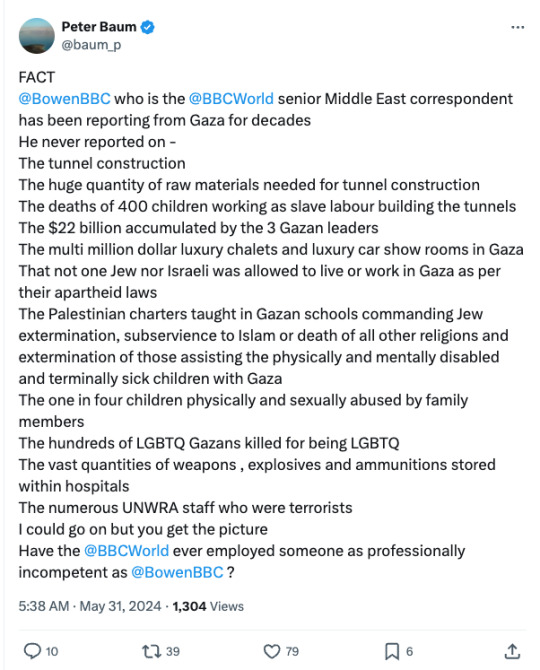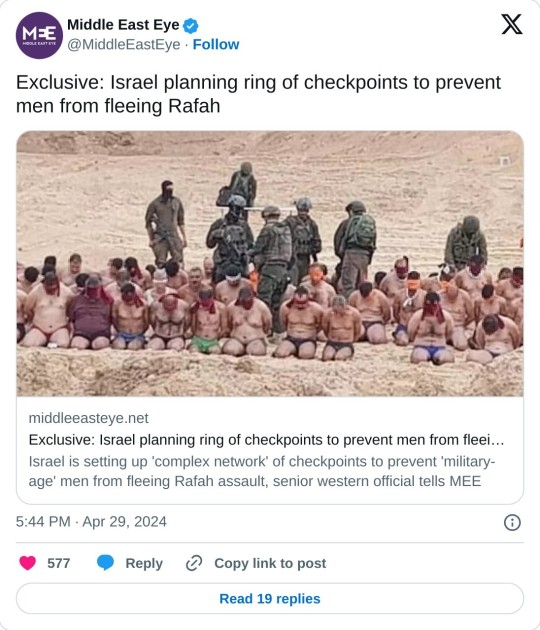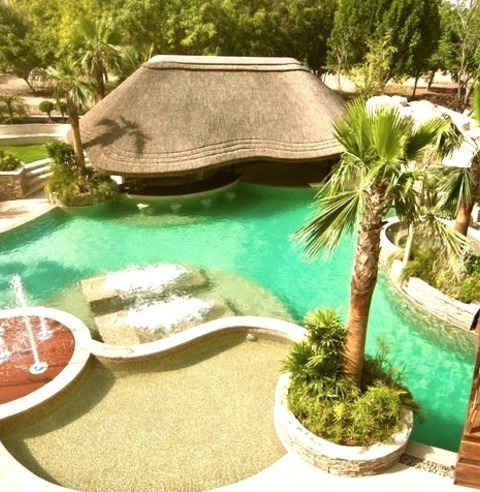#Middle East construction
Explore tagged Tumblr posts
Text
Latest Construction News Ongoing Around the World
The construction industry is undergoing significant changes globally, driven by technological advancements, sustainability initiatives, and evolving market dynamics. This article explores the latest construction news and ongoing projects around the world, highlighting key developments, challenges, and trends shaping the future of the industry. Major Ongoing Projects in Construction News 1. Saudi…

View On WordPress
#augmented reality#Building Information Modeling#Buildots AI#construction costs#Construction news#Construction Technology#Esri GIS integration#Galfar water reclamation plant#green building#India construction boom#infrastructure development#labor shortages#latest construction projects#Leica smart antenna#Middle East construction#NEOM THE LINE#renewable energy projects#ROSHN Stadium#Serentica solar project.#Sustainable Construction
0 notes
Text
i admit that i find it a little bit frustrating how Wildly Astonished other antizionist jews act when i tell them my israeli jewish family have lived in the region since [some unknown length of time before 1800 when there start being records about it]
#and then they're like ''ohhh they're mizrahi!'' [connotation nonwhite‚ virtuously indigenous]#and i have to be like. no. it's just that‚ as palestine was in fact ottoman-administered greater syria for most of the last 600 years‚#you could get there from other parts of the ottoman empire. such as the part of now-ukraine your ashkenazi family is also from.#it wasn't actually a hermetically sealed arab-only ethnostate that evaporated immigrants on sight. it was a pretty decent place to live as#a jew by at least some accounts. or better than the front of the hapsburg-ottoman war anyway which is where they were coming from.#i'm not sure who you think it's serving exactly to believe that there were literally no ashkenazim in the middle east before the 1st aliyah#however there were some. and this information does not actually threaten a modern anti-state of israel position like at all.#but since apparently you've constructed your new Diaspora-Centric Identity around the idea that 'palestine' and 'diaspora'#are the two mutually exclusive nonoverlapping regions and the former is ontologically a no-european-jews-allowed zone#i guess i can give you a minute to try to figure it out.#ugh sorry this is nothing it isn't anything. for one thing it's fantastically unimportant#and for another thing i don't know how to like talk about it in a way that doesn't make me sound at least kind of like im trying to justify#myself as being somehow less complicit or something. i mean i think my complicity as an american dwarfs the rest of it honestly but.#i just feel really insanely alienated where the rhetoric of my theoretically most closely politically aligned group is not really built to#like. accommodate the facts of my family history.#sorry. i have honestly no idea why im so obsessed with articulating this concept ive just been chewing on it pointlessly for days#box opener
65 notes
·
View notes
Text

Source
#@bowenbbc#bowenbbc#bbc world#senior middle east correstpondent#gaza#hamas#tunnel construction#professional incompetence
34 notes
·
View notes
Text

03-01-25 | Dubai. misterlemonztenth.tumblr.com/archive
8 notes
·
View notes
Text
Selecting the right pressure gauge is essential for ensuring accurate pressure measurement in industrial systems. Whether you need a standard analog gauge or a digital pressure gauge, choosing the right type depends on several factors, including pressure range, application environment, and gauge material. In this guide, we’ll help you understand the key considerations to find the best fit for your needs.
#saudi arabia#construction#best industrial fittings traders in middle east#digital pressure gauge supplier#pressure gauge supplier in saudi arabia#rawabi al mahfar trading company
0 notes
Text

Construction Technology ConFex UAE 2025, to be held from 30 April to 01 May 2025 at JW Marriott Hotel Marina, Dubai, will be the prime event to change the face of the construction industry. Network with 1,000+ industry professionals, get familiar with emerging technologies such as AI, BIM, and robotics, and hear from over 150 speakers. Register today to become the architect of construction's future.
1 note
·
View note
Text
Don't let the media make what's happening with Israel, Iran and Jordan into some "middle-east problem" again. This was entirely orchestrated and encouraged by the US and the UK. Israel initiated every attack against Lebanon, Syria, Palestine, and Iran. Israel KILLED, targeted, the children and grandchildren of Palestinians political leaders. And the US could've stopped all of this by simply not giving Israel money and weapons bu they didn't.
The Western media has constructed this narrative that countries like Iraq and Iran are the problem and the western nations are the antidote keeping their 'terrorism' at bay. No, they have always and at all times started the conflicts, or worsened them.
Because they want the land, they want hegemony over the resources of that region and that is it. And they've demonstrated already by killing over 33,000 people that they'll do anything.
Stop joking about World War 3 and take the loss of lives and the horror of what is happening seriously. This cannot keep escalating
19K notes
·
View notes
Text

#digitalart#stone house#neolithic#art#ancient civilization#construction#ai#middle east#rural village#aiart#6000 bc
0 notes
Text
أكبر شركات البناء في الشرق الاوسط
تنشط صناعة مقاولات البناء بشكل كبير في منطقة الشرق الأوسط، وتشهد تلك السوق نموًا مستمرًا نتيجة للتطور العمراني السريع والاستثمارات الكبيرة في مشاريع البنية التحتية والعقارات. تضم المنطقة الشرقية شركات مقاولات ضخمة تعمل في مختلف القطاعات بما في ذلك الإنشاءات العامة والسكنية والتجارية والصناعية والبنية التحتية. في هذا المقال، سنلقي نظرة على بعض من أكبر شركات البناء في الشرق الأوسط.
0 notes
Text

Israel is setting up a complex system of checkpoints that will prevent men of “military age” from fleeing Rafah in preparation for its offensive on the southern Gaza border city, a senior western official familiar with Israel’s plans has told Middle East Eye on condition of anonymity. The checkpoints are designed to allow some women and children to leave Rafah ahead of an expected Israeli offensive, but unarmed, civilian Palestinian men will likely be separated from their families and remain trapped in Rafah during an expected Israeli assault. The previously unreported disclosure of Israel’s construction of a ring of checkpoints around Rafah underscores how Israel is pushing ahead with plans to attack the city where over one million displaced Palestinians are sheltering in tents and makeshift camps. The creation of gender-based checkpoints around Rafah would put a spotlight back on Israel’s practice of stripping and forcibly detaining male Palestinian men and children, as it faces rising scrutiny in the West of its conduct in the war. The rounding up of Palestinian males in Gaza and photographing them stripped to their underwear drew condemnation in December, with the US calling the images “deeply disturbing”. Relatives of many of the men photographed recognised them and said they had nothing to do with Hamas. Israel's military was later accused of staging footage of men surrounding weapons. “Israel considers every male a Hamas fighter until proven otherwise,” Abbas Dahouk, a former senior military advisor at the State Department and military attache in the Middle East told Middle East Eye. “It’s not a sound move. Cordoning Rafah is a daunting task and good luck separating fathers and sons from their families.”
#yemen#jerusalem#tel aviv#current events#palestine#free palestine#gaza#free gaza#news on gaza#palestine news#news update#war news#war on gaza#rafah#all eyes on rafah#save rafah#gaza genocide#genocide#palestinian men
10K notes
·
View notes
Text
GCC Construction Equipment Market Share, Industry Size, Revenue, Growth Drivers, Upcoming Trends, Challenges, Business Opportunities and Forecast 2033: SPER Market Research
The term "construction machinery" describes a wide range of strong tools made for different construction jobs, which greatly boost the output and advancement of building projects. On building sites, these instruments are especially made to do labor-intensive jobs including grading, lifting, excavating, and moving materials. Cranes, loaders, bulldozers, excavators, and concrete mixers are typical examples. Bulldozers are needed for grading and earthmoving, while excavators are multipurpose tools with a bucket for lifting and digging tasks. Loaders help move things throughout the site, but cranes are required for lifting and positioning heavy items. The right mixing of the components of concrete is ensured by concrete mixers. Modern technologies that rely on efficiency and precision, like GPS systems, have been made feasible by advancements in construction machinery.
According to SPER market research, ‘GCC Construction Machinery Market Size - By Machinery Type, By Application Type - Regional Outlook, Competitive Strategies and Segment Forecast to 2033’ state that the GCC Construction Machinery Market is predicted to reach USD 6.86 billion by 2033 with a CAGR of 3.38%.
The market is anticipated to rise as a result of the region's expanding construction industry, rising crane demand, and growing inclination toward automation and telematics for market advancement. Nonetheless, the region's capacity to develop and market new construction equipment may be hampered by the rising demand for rental services.

Due to the numerous ongoing construction and water projects in countries like Oman and the United Arab Emirates, cranes are predicted to dominate the machinery market. However, it is projected that the construction industry will benefit from the government's increased infrastructure investment and the initiation of development projects in the upcoming years.
The shifting conditions in the GCC Construction Equipment Market are influenced by a number of challenges. Many GCC countries rely mostly on oil money to pay their construction projects, thus fluctuations in the economy, particularly those related to oil prices, provide a serious difficulty. Geopolitical disputes in the area may also impede construction efforts. The machinery industry is impacted by changes in standards and compliance requirements, which also increase the complexity of the regulatory environment. One recurring problem that makes it difficult to fully utilize modern construction equipment is the lack of skilled labor. Although increasing output is the goal of these robots, a lack of skilled operators could lead to project delays and higher running costs.
Request For Free Sample Report @ https://www.sperresearch.com/report-store/gcc-construction-machinery-market.aspx?sample=1
The COVID-19 pandemic had a detrimental effect on the market under review, mostly as a result of the construction and manufacturing industries ceasing. The governments of the Middle East also stopped expanding the pipeline and cut employees at the locations. As a result, the output of buildings has decreased. However, the market is expected to see significant expansion throughout the estimated period due to the increase in building activities, which is probably mostly caused by greater government backing and the global revival of construction activities.
GCC Construction Machinery Market Key Players:
Furthermore, The construction machinery industry in the United Arab Emirates (UAE) is predicted to develop at the quickest rate among Middle Eastern countries, as the construction sector is a vital driver for the UAE's economy. Additionally some of the market players are: JCB, Kobelco Construction Machinery, Komatsu, Liebherr International AG, Mitsubishi, Sumitomo Construction Machinery, Volvo Construction Equipment Corp., Wirtgen Group, Others.
Middle East Construction Equipment Market Segmentation:
The SPER Market Research report seeks to give market dynamics, demand, and supply forecasts for the years up to 2033. This report contains statistics on product type segment growth estimates and forecasts.
By Machinery Type: Based on the Machinery Type, GCC Construction Machinery Market is segmented as; Crane, Excavator, Loaders and Backhoe, Motor Graders, Telescopic handles, Others.
By Application Type: Based on the Application Type, GCC Construction Machinery Market is segmented as; Concrete Construction Equipment, Earth Moving Equipment, Material Handling Equipment, Road Construction Equipment.
By Region: This research also includes data for Saudi Arabia, United Arab Emirates, Kuwait, Qatar, Rest of GCC Countries.
This study also encompasses various drivers and restraining factors of this market for the forecast period. Various growth opportunities are also discussed in the report.
For More Information, refer to below link:-
Middle East Construction Equipment Market Demand
Related Reports:
Europe Fire-Rated Doors Market Size- By Material, By Product, By Application- Regional Outlook, Competitive Strategies and Segment Forecast to 2033
Saudi Arabia Real Estate Market Size- By Property Type, By Application - Regional Outlook, Competitive Strategies and Segment Forecast to 2033
Follow Us –
LinkedIn | Instagram | Facebook | Twitter
Contact Us:
Sara Lopes, Business Consultant – U.S.A.
SPER Market Research
+1-347-460-2899
#Construction Machinery Market#GCC Construction Machinery Market#Construction Equipment Market#GCC Construction Equipment Market#Middle East Construction Equipment Market#MENA Construction Equipment Market#Middle East and Africa Construction Equipment Market#GCC Construction Machinery Market Market Growth#GCC Construction Equipment Market Challenges#GCC Construction Machinery Market Market Competition#GCC Construction Equipment Market Report#GCC Construction Machinery Market Market Segmentation#GCC Construction Equipment Market Future Outlook#Construction Machine in Middle East#GCC Construction Equipment Market Size#GCC Construction Machinery Market Market Trends#GCC Construction Equipment Market Share#GCC Construction Machinery Market Market Revenue#GCC Construction Equipment Market Demand
0 notes
Text
Middle East and Africa Modular Construction Market Analysis, Forecast 2022-2029
BlueWeave Consulting, a leading strategic consulting and market research firm, in its recent study, estimated the Middle East and Africa modular construction market size at USD 6.32 billion in 2022. During the forecast period between 2023 and 2029, BlueWeave expects the Middle East and Africa modular construction market size to grow at a CAGR of 7.9% reaching a value of USD 10.76 billion by 2029. The Middle East and Africa modular construction market is driven by several key factors. Firstly, rapid urbanization and population growth in the region are creating a demand for fast and cost-effective construction solutions. Secondly, the need for infrastructure development, including housing, healthcare facilities, and education institutions, is propelling the adoption of modular construction methods. The region's focus on sustainability and energy efficiency is also encouraging the use of eco-friendly modular building materials. Lastly, the ability of modular construction to mitigate labor shortages and reduce construction timelines is attracting both public and private sector investments, further boosting market growth.
Modular Construction – Overview
Modular construction is a construction method that involves building structures using prefabricated modules or components manufactured off-site and then assembled on-site. These modules can be anything from entire rooms to building sections. This approach offers numerous advantages, including faster project completion, reduced costs, improved quality control, and increased sustainability. Modular construction is versatile and applicable to various building types, from residential homes to commercial and industrial facilities. Its efficiency and flexibility make it a popular choice in the construction industry, as it allows for quicker and more cost-effective building solutions while maintaining high quality standards.
Sample Request @ https://www.blueweaveconsulting.com/report/middle-east-and-africa-modular-construction-market/report-sample
Prolonging Israel-Hamas War Affecting Market Growth
The raging war between Israel and Hamas, a Palestine-based militant and nationalist organization, sends shockwaves across various industries, particularly oil & gas, transcending geographic boundaries and affecting businesses globally. The conflict between Israel-Hamas has been a longstanding, deeply entrenched geopolitical issue. On October 07, 2023, Hamas, in a surprise and heavy attack, struck Israel with thousands of rockets and infiltrations killing more than 1,100 people. In response, the prime minister of Israel declared war against Hamas and anticipated that the war would be ‘long and difficult.’ The United States has sent its warships and aid to Israel and stated that its citizens were killed in the war. The prolonging war in West Asia and escalating the Middle East will affect industries across verticals and regions.
Effects of the Israel-Hamas war on the Middle East and Africa modular construction market are primarily driven by uncertainties and instability in the Middle East region. The conflict creates an atmosphere of uncertainty that makes companies and policyholders wary. The Israel-Hamas conflict significantly impacts the construction industry in the Middle East and Africa, causing a multitude of challenges and uncertainties. The raging war in the region lead to increased risks for businesses in the construction market. They face elevated costs due to the higher probability of damage to properties, infrastructure, and assets. Additionally, the escalated geopolitical tensions can lead to changes in regulations and policies, affecting construction markets and investments. The environment of heightened risk often results in rising costs for businesses and individuals.
Impact of COVID-19 on Middle East and Africa Modular Construction Market
COVID-19 pandemic significantly impacted the Middle East and Africa modular construction market. Lockdowns, supply chain disruptions, and labor shortages slowed project timelines and increased costs. However, the industry also saw increased interest in modular construction due to its ability to reduce on-site labor and promote social distancing. This led to a surge in demand for healthcare facilities, quarantine centers, and affordable housing units, driving some growth in the market. Overall, the pandemic underscored the resilience and adaptability of modular construction in responding to crisis situations, but also highlighted the need for improved logistical planning and supply chain resilience in the region.
Middle East and Africa Modular Construction Market - By End User
By end user, Middle East and Africa modular construction market is divided into Residential, Hospitality, Healthcare, Education, Retail & Commercial, and Office segments. The residential segment is the largest contributor, reflecting the region's growing demand for efficient and cost-effective housing solutions. The hospitality segment is also significant, driven by the expansion of tourism and the need for rapid construction in the hospitality industry. Healthcare and Education segments are gaining prominence due to the increasing focus on healthcare facilities and educational infrastructure development. Meanwhile, the retail and commercial, as well as the office segments, are showing steady growth, indicating the versatility of modular construction across various industries within the Middle East and Africa.
Competitive Landscape
Middle East and Africa modular construction market is fiercely competitive. Major companies in the market include Katerra, Red Sea International, KEF Infra, Algeco Group, Aden Group, Afripanel, MEFAB, Gulf Prefab Houses Factory LLC, Premier Modular Limited, Al Falaah DG, and Elan Group. These companies use various strategies, including increasing investments in their R&D activities, mergers, and acquisitions, joint ventures, collaborations, licensing agreements, and new product and service releases to further strengthen their position in Middle East and Africa modular construction market.
Contact Us:
BlueWeave Consulting & Research Pvt. Ltd
+1 866 658 6826 | +1 425 320 4776 | +44 1865 60 0662
0 notes
Text
https://justpaste.it/right-pressure-gauge-suppliers
#construction#best trading company in saudi arabia#best industrial fittings traders in middle east#digital pressure gauge supplier#Pressure gauge supplier in Saudi Arabia
0 notes
Photo

Tropical Landscape - Retaining Walls Inspiration for a sizable tropical backyard landscape with a retaining wall made of concrete.
1 note
·
View note